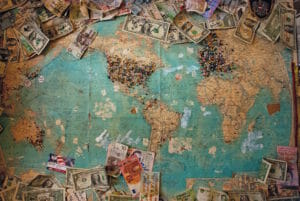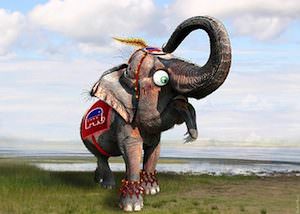America’s Recovery Stands Out in a Shaky World
Unemployment is still too high, income is still too low and the recovery is still much too slow -- but the United States is faring considerably better than other developed nations against the threat of a renewed recession.Unemployment is still too high, income is still too low and the recovery is still much too slow — but the United States is faring considerably better than other developed nations against the threat of a renewed recession.
Don’t believe it? Maybe you should stop listening to the right-wing propaganda machine, which has been trash talking the U.S. recovery ever since Barack Obama’s inauguration, and start paying attention to economic analysts who know what they’re talking about — and provide hard data to back up their findings.
They provide a hard, factual, real-world context for our often-absurd political debate, especially as the presidential election approaches.
Every few months, a fresh report appears showing that the U.S. recovery is continuing and even strengthening, despite stagnation and austerity in Europe that drag down the entire global economy. Last June, the Organization for Economic Cooperation and Development noted that the U.S. recovery was gaining momentum, in contrast to its weak trading partners, despite continuing problems in housing and construction and its report praised the Obama administration’s policy initiatives on employment, the budget and taxation.
Now the latest pronouncement comes from the Financial Times, the London-based business daily, and the Brookings Institution, a centrist Washington think-tank, which jointly declared over the Columbus Day weekend that the U.S. remains “the brightest spot in the world economy.”
Their assessment is based on a comprehensive worldwide report known as TIGER, or Tracking Indices for the Global Economic Recovery, which combines measurements of real economic activity, financial data and surveys of business and consumer confidence. Using advanced statistical methodology, TIGER illustrates the simultaneous movements of all kinds of numbers that tend to be measured very differently in various countries.
What those numbers tell us now was summed up by the Financial Times on its front page last Monday under the headline “US defies threat of global recession.”
Within those few words lie a powerful argument against changing policies, and a presidential administration, that have kept us afloat in a whirlpool of drowning countries.
“The global economic recovery is on the ropes, battered by political conflicts within and across countries, lack of decisive policy actions, and governments’ inability to tackle deep-seated problems, such as unsustainable public finances that are stifling growth,” said Eswar Prasad, a Brookings senior fellow and creator of the TIGER index. “The U.S. economy remains the sole bright spot, with economic activity, employment and financial markets all showing unexpected although still modest strength.”
It is sobering to realize how fragile our present progress may be, given the recessionary pressures around the world. Global demand remains too feeble to promote a strong and steady recovery overall, despite continuing efforts by the central banks in the U.S., Europe, and Asia.
The TIGER data, compiled from the Group of 20 nations, shows worrisome deterioration. It was released on the eve of the annual meetings of the World Bank and the International Monetary Fund in Tokyo, where finance ministers and central bankers will discuss how to stimulate growth and forestall another recession.
The Financial Times also quoted leaked IMF data indicating that global growth projections for this year will be revised downward, from 3.4 percent to 3.3 percent, and for next year from 3.9 percent to 3.6 percent. But that is only another strong argument for the U.S. to avoid the same errors that have hobbled recovery abroad.
Favorable comparison with other nations doesn’t provide jobs for the unemployed or save an over-mortgaged home from foreclosure, of course. But in a faltering world economy, America’s relative growth and stability reinforce President Obama’s argument that his policies are working far better than the alternative offered by Republican Mitt Romney.
And the incessant criticism by Romney loses credibility if the U.S. economy is truly outperforming the rest of the developed world — especially those nations pursuing the austerity policies advocated by Romney and his running mate, the budget-slashing Rep. Paul Ryan. Will we really do better by imitating the United Kingdom and other nations where those policies have already failed?
© 2012 CREATORS.COM
Your support matters…Independent journalism is under threat and overshadowed by heavily funded mainstream media.
You can help level the playing field. Become a member.
Your tax-deductible contribution keeps us digging beneath the headlines to give you thought-provoking, investigative reporting and analysis that unearths what's really happening- without compromise.
Give today to support our courageous, independent journalists.






You need to be a supporter to comment.
There are currently no responses to this article.
Be the first to respond.